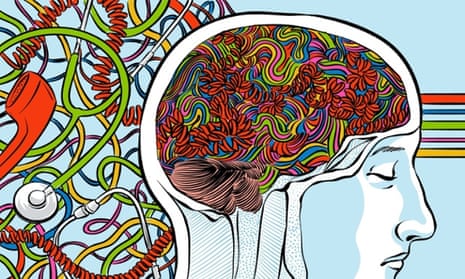In the Observer last Sunday, Elizabeth Day wrote an article questioning whether there was still a stigma surrounding mental illness. Her reasoning was that because there has been an outpouring of stories about depression in the wake of Robin Williams’ death, we’re all fully tuned in to the nuances of mental health problems now. Day argues that if there’s anything resembling a stigma left, it’s because we keep using the word stigma, not because there’s an actual stigma. Besides, what does stigma mean, anyway?
According to the Mental Health Foundation, depression affects about 1 in 12 people in the population, and about 1 in 4 people will experience a mental health problem at some point in their lives. Since Williams’ death, talk of depression and suicide has been near constant in the media. In short, depression is everywhere. Does that mean that it’s easier for someone with depression to talk about it?
From my own experience, I would say that the answer is no – or at least, not necessarily. I’ve suffered from depression for a long time, and although I’ve felt a personal need to talk about it in recent weeks, I haven’t. I haven’t been able to, in part because it doesn’t seem appropriate. To talk about something that’s so emotive at a deeply personal level feels like it runs the risk of exposing something about yourself that you don’t necessarily want everyone to know about, or to judge you in terms of. I know on some level it sounds silly, but I don’t want to be known as ‘that depressed guy’. But that’s just my own view, and therein lies the problem in talking about stigma in such generalised terms.
There are lots of different types of stigma, and overcoming them requires different strategies. In a paper recently published in Psychological Medicine, Sarah Clement and colleagues from King’s College London neatly outline some of the ways in which it can be categorised. It seems to me that when mental health stigma is discussed in the media, we’re mostly talking about either experienced or perceived stigma – in other words, situations in which people have directly experienced unfair treatment, or opinions on the extent to which people in the general public have stigmatising attitudes towards mental illness.
But there are other types – including what Clement and colleagues refer to as anticipated stigma (where someone presupposes the way in which they might be perceived or treated), treatment stigma (the perceived implications of seeking or receiving treatment) and internalised stigma (in which you hold stigmatising views about yourself).
So while talking about depression in the media might help with perceived stigma, it’s not necessarily the case that it will help with other forms. There is still a very real and well-documented problem in stigma affecting help-seeking behaviour, for instance. The Clement paper is a systematic review of 144 studies since 1980 that have looked at whether there is any association between various types of stigma and help-seeking, and found a small to moderate negative effect. In other words, in situations where stigma could be treated as a scalable measure, greater levels of stigma deterred people from seeking help from health services. The types of stigma that most contributed to this effect were treatment stigma and internalised stigma, whereas perceived stigma only showed a relatively weak association. This deterrent effect was also disproportionately larger in a number of subgroups within the population, including ethnic minorities, and people who work in the military or in the health professions.
Healthcare itself is an interesting area to look at, as aside from research showing an effect of stigma on help-seeking behaviour for people working in health, a number of studies have also shown that healthcare professionals are themselves prone to stigma. For example, some studies have shown that patients with mental illness are less likely than patients without such illness to be hospitalised after having a diabetic emergency, or less likely to be referred for a mammogram. Other studies have shown that healthcare professionals with more stigmatising attitudes tend to be more critical when it comes to expectations about a patient’s adherence to treatment, regardless or not of whether they come from a mental health background.
In short, the problems surrounding mental health stigma are nuanced and far-reaching, and we really need to get to grips with the effect that each different type can have. I think it’s great that more people are now feeling able to talk about their own experiences with depression, but we mustn’t fool ourselves into believing that this means that the stigma has been eradicated. When it comes to depression, things are never that easy.

Comments (…)
Sign in or create your Guardian account to join the discussion